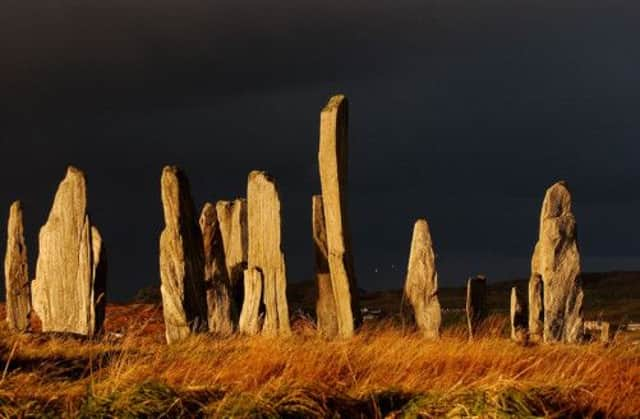Scottish islands say ‘we want to control destiny’


With Scotland facing major constitutional change regardless of the referendum outcome, the councils of Shetland, Orkney and the Western Isles are flexing their muscles in the hope that power can be transferred to Lerwick, Kirkwall and Stornoway.
Leaders of the campaign “Our Islands – Our Future” have written to Alex Salmond and David Cameron with questions the islands’ councils want answered.
Advertisement
Hide AdAdvertisement
Hide AdThe campaign, made up of Shetland Council, Orkney Council and Comhairle nan Eilean Siar, has taken a neutral stance on the independence question but wants more ability to shape the island groups’ destinies regardless of the result of the vote.
The three councils, which are run by independent administrations with the vast majority of councillors rejecting conventional party politics, have come together to form the campaign.
Mr Salmond is in Shetland next week to host a meeting of the Scottish Cabinet in Scotland’s most northerly outpost.
The letters ask what benefits or powers they would offer to Orkney, Shetland and the Western Isles. The move follows islanders agitating for control of the sea bed around the islands, allowing revenues currently paid to the Crown Estate to be channelled into local needs.
Islanders also want new grid connections to the Scottish mainland to allow world-class wave, tidal and wind energy resources to generate maximum benefits for the islands.
And they have expressed interest in new fiscal arrangements to allow the islands to benefit more directly from the harvesting of local resources, including renewable energy and fisheries.
The letter also asks Mr Salmond and Mr Cameron if they would consider constitutional change for the island groups so that councils could manage devolved budgets.
The letter asks the governments if they would ensure Orkney, Shetland and the Western Isles gain control of their own marine-related resources if that came under Scottish control.
Advertisement
Hide AdAdvertisement
Hide AdWith Scotland facing a transfer of income tax and other powers under the Scotland Act if voters reject independence, islanders wanted to know what the implications of both a Yes or No vote would be.
Yesterday, Orkney Islands Council convener Steven Heddle said: “We’ve made plain from the start our determination to engage with politicians on both sides of the independence debate. By writing direct to political leaders, our aim is to secure tangible commitments that support us in our shared objectives.”
Angus Campbell, leader of Comhairle nan Eilean Siar, said: “The campaign to win increased powers is crucial for the future of island communities and we will continue to lobby government at a Scottish and UK level.”
Earlier this year the Lib Dem MSP for Shetland, Tavish Scott, called for home rule for Shetland and Orkney, so that the archipelagos could take advantage of the oil reserves in their waters.
Yesterday, Mr Scott said: “This is a good campaign and Alex Salmond must respond to it when he arrives in Shetland next week with his Cabinet with him.
“This campaign is calling for a commitment to the islands, which has been sadly missing over the past five years.”
Last night, a Scottish Government spokesman said: “Independence opens up many opportunities for our island communities, along with the rest of the country, and we look forward to engaging with the three councils on their ideas.”
A UK government spokesman said: “The UK government will respond in due course but most issues of further devolution to local areas within Scotland are the responsibility of the Scottish Government.”
KEY QUESTIONS
Some of the letter’s main points:
Advertisement
Hide AdAdvertisement
Hide Ad• Are you prepared to put together a manifesto for the islands and remote rural areas which defines a special status?
• What is your vision for local authorities in Scotland following the referendum?
• What is your commitment to the continued existence of the individual island authorities?
• Will you consider some form of constitutional change for Orkney and Shetland and the Western Isles?
• Can we manage devolved budgets and decision-making in specific areas of interest?
• What will be your commitment to sustaining our ‘really vulnerable’ remote communities?
• How do you plan to protect the unique culture of our islands?
• Are you prepared to exempt the island groups from “bedroom tax”?
Advertisement
Hide AdAdvertisement
Hide AdBrian Wilson: Campaign highlights challenges faced by our remote populations
There are excellent reasons for pursuing this objective and forcing political parties to respond to it.
First, the islands need greater decision-making powers and control over their own resources in order to turn around the depressing demographic trends which continue to afflict them. Headline figures for the Highlands as a whole serve to disguise the fragility of Scotland’s most peripheral areas.
There has long been a tension between growth centres, notably around the Cromarty Firth, and the very different needs of islands and mainland periphery. The growth of Inverness, a success story based on massive public investment over five decades, inevitably sucks people and resources from the periphery, contributing to continuing decline.
Then there is the ongoing process of centralisation towards Edinburgh with functions which formerly dealt with at relatively local level now transferring to a Scotland-wide basis under political control. This applies not only to services like police and fire but also the powerful quangos which have disproportionate influence over life on the edge.
The powers of environmental quangoes to impose restrictive designations on land and sea are feared and resented. While islands and periphery are left with the consequences, they have little input into their formulation. Revenues from the Crown Estate are another key issue. Under all such headings, devolution of powers and money to locally accountable bodies would transform prospects.
At the very least, the campaign highlights the continuing challenges of population loss and under-development faced by Scotland’s most fragile communities. The islands are capable of punching above their weight politically and no sensible political party will ignore or brush aside the entirely reasonable case they are now articulating.